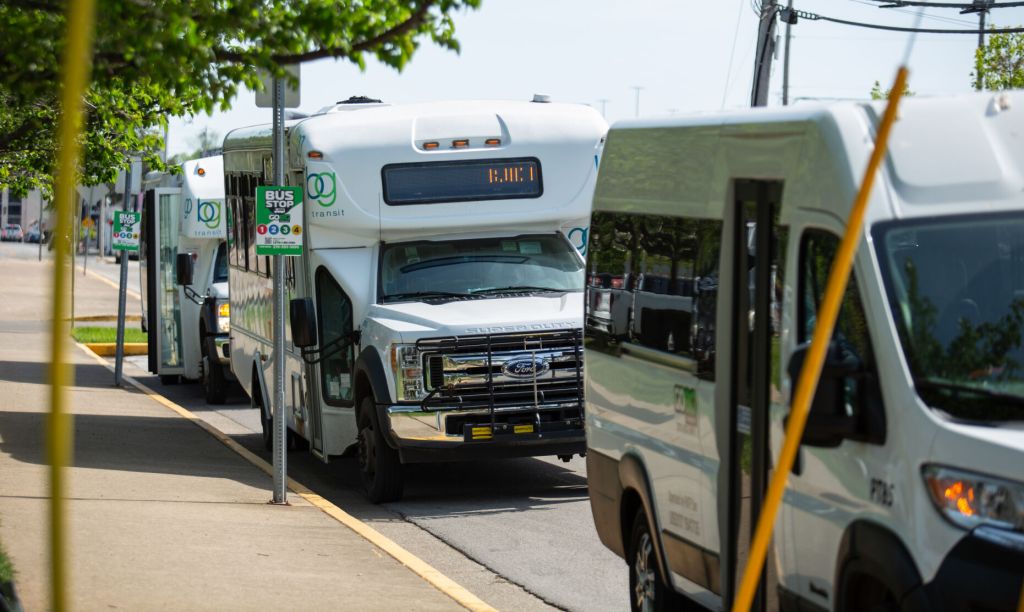City, WKU moving ahead on transit merger study
Published 6:00 am Friday, July 19, 2024

- GoBG Transit busses pick up passengers outside the Warren County Justice Center on Tuesday morning, April 23, 2024. (Grace Ramey/grace.ramey@bgdailynews.com)
The Bowling Green & Warren County Metropolitan Planning Organization is soliciting proposals for a “merger study” of GoBG Transit and Western Kentucky University Topper Transit.
Brent Childers, director of Neighborhood and Community Services for the City of Bowling Green, said both services have been “aligning” over the past few years, but this newest study will examine what a combined transit system would look like.
“It doesn’t mean that it’s going to (merge),” Childers said. “It’s just looking at it as, what is the best way to deliver transit services for the students and the citizens of Bowling Green.”
Jennifer Tougas, assistant vice president for Business Services at WKU, described the main question the study hopes to answer.
“Does it make sense for us to have two separate, and in some ways competing, operations,” Tougas said.
She said from WKU’s perspective, a merger of the two systems would cut down on some costs associated with running Topper Transit.
“We have a need on the university side to reduce our costs, but we still need to provide service to the students,” she said. “That’s always something that’s on (the city’s) mind as well.”
The idea of combining the two fleets is not new. According to the request for proposals shared by the MPO, a 2019 study conducted of GoBG and WKU transit recommended a combination of both management and operations.
GoBG was originally operated by Community Action of Southern Kentucky, which obtained a contract with the City of Bowling Green to run the service in 2003. The service came under the management of national firm RATP Dev USA in 2020, which has operated it since.
RATP Dev has also managed Topper Transit since 2023. While both are managed by the same company, operations with the two remain separate.
Childers said while there are “no dead-set plans” yet to fully merge the two operations, it is something “both organizations are open to looking at … .”
He said one of the benefits of combining GoBG and Topper Transit would be having a combined effort.
“You (would) have one consistent force out there pushing transit in the community,” Childers said. “On the user side, it (would) promote access for anybody to ride any buses that are currently available on the routes that are out there.”
A combined service would also allow for sharing ridership data, which would be cataloged into one system, which Childers said would make it easier to secure additional federal funding.
With the two services remaining somewhat isolated from each other, he said public transportation is not in the public focus as much.
“You just kind of see it becoming more and more of a focal point of public transit being an available service here in Bowling Green,” he said. “Right now, with it being split into two, it’s not as prominent as the public service we’re trying to get it to be.”
Proposals from consultants to the MPO are due Aug. 14. Selection of the consultant will take place the week of Aug. 26 and a final due date for the project is scheduled for June 30 of next year.
A consulting study done on the fleets should cost no more than $120,000, according to the RFP.





